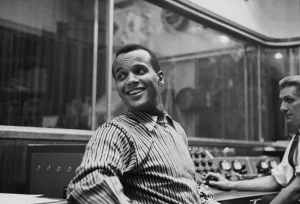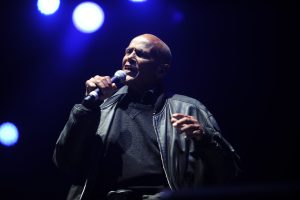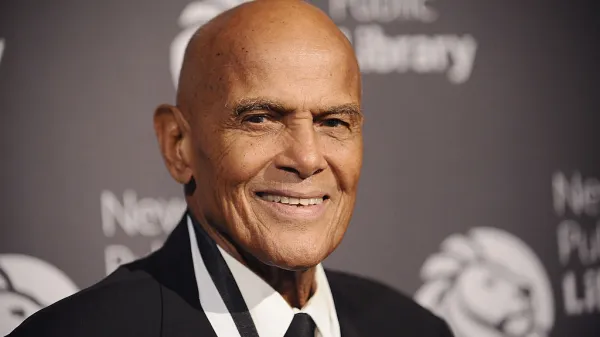Harry Belafonte was not just an iconic singer and actor; he was a revolutionary figure who consistently used his platform to push for social change. Even in his later years, Belafonte remained deeply engaged in the arts and activism, always seeking new ways to bring people together and address the pressing issues of the day. His latest endeavor, a festival aimed at fostering cultural exchange and inspiring action, was a testament to his unwavering commitment to these causes.
A Lifetime of Advocacy and Artistry
 Throughout his life, Harry Belafonte was a vocal advocate for civil rights and social justice, using his music and celebrity to amplify the voices of the marginalized. From his early days as a musician, where he introduced the world to the sounds of Calypso with hits like “Day-O (The Banana Boat Song),” to his involvement in the civil rights movement alongside Dr. Martin Luther King Jr., Belafonte was always at the forefront of cultural and political change.
Throughout his life, Harry Belafonte was a vocal advocate for civil rights and social justice, using his music and celebrity to amplify the voices of the marginalized. From his early days as a musician, where he introduced the world to the sounds of Calypso with hits like “Day-O (The Banana Boat Song),” to his involvement in the civil rights movement alongside Dr. Martin Luther King Jr., Belafonte was always at the forefront of cultural and political change.
In numerous interviews, Belafonte reflected on how his experiences as a Black man in America shaped his artistic vision and fueled his activism. He spoke passionately about the responsibility he felt to use his art as a tool for change, emphasizing that music and culture could be powerful catalysts for social transformation. This belief was the driving force behind many of his projects, including his latest venture—a festival designed to bring people together through art and activism.
The Festival: A Vision for the Future

Harry Belafonte’s new festival was conceived as a platform for cultural exchange, where artists from diverse backgrounds could come together to share their work and engage in conversations about social justice. Belafonte hoped the festival would inspire both participants and audiences to think critically about the role of art in addressing the challenges facing society today.
In interviews leading up to the festival, Belafonte discussed his vision for the event. He wanted it to be more than just a celebration of art and music; he saw it as an opportunity to spark dialogue and encourage action. “Art has always been at the heart of social movements,” Belafonte said. “This festival is about bringing people together to reflect on the world we live in and to imagine how we can make it better.”
The festival’s programming was designed to reflect Belafonte’s commitment to inclusivity and diversity. It featured performances from artists around the world, representing a wide range of cultural traditions and artistic disciplines. By showcasing this diversity, Belafonte aimed to highlight the common humanity that connects us all, while also drawing attention to the unique perspectives that different cultures bring to the table.
Leading a New Generation of Activists
Belafonte’s hope for the festival was that it would serve as a catalyst for a new generation of artists and activists. He envisioned it as a space where young people could learn from seasoned artists and activists, gaining the inspiration and tools they needed to carry forward the work of social change.
In his interviews, Belafonte often spoke about the importance of mentoring the next generation. He believed that young people were the key to creating lasting change, and he was passionate about providing them with opportunities to learn, grow, and lead. “The future belongs to the young,” Belafonte said. “This festival is about passing the torch and ensuring that the work of building a just and equitable world continues.”
A Legacy of Change
Harry Belafonte’s festival was the culmination of a lifetime dedicated to using art as a force for good. His legacy as a leader in both the arts and activism is profound, and his influence continues to be felt today. The festival, with its focus on cultural exchange and social justice, was a fitting tribute to his enduring commitment to these causes.
In reflecting on his life and work, Belafonte once said, “I’ve always believed that art is a weapon for change.” This belief guided him throughout his career and was the driving force behind the festival he hoped would inspire a new generation to take up the fight for justice.
Harry Belafonte’s vision for the festival was a reminder of the power of art to bring people together, to challenge the status quo, and to inspire us all to imagine a better world. His legacy lives on in the artists and activists who continue to draw inspiration from his life and work, proving that the impact of his efforts will be felt for generations to come.





0 Comments